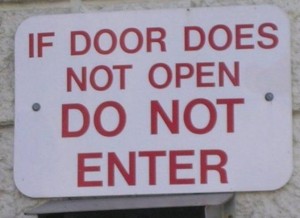This Is Not About You Or Me
 The prosecutor is mad at me. So I send her a quick email to apologize.
The prosecutor is mad at me. So I send her a quick email to apologize.
It is true: I am sorry. I am sorry that she has been sick. I am sorry that her daughter has been sick. And I am sorry if I embarrassed her in front of the judge.
But I am not sorry for complaining to the court. The court needs to be aware of things. It needs to be sensitive to the many ways in which our neglect – even in extremely small matters – can impact the lives of criminal defendants.
I know this sounds sanctimonious. But I am guilty of it too. For those of us who have worked within the criminal justice system for a while, there is always the risk that we become inured to the petty injustices that are inflicted on a person who is accused of a criminal offense. I am not talking about gross miscarriages of justice. Instead, I am talking about judges who take the bench late. I am talking about defense lawyers who don’t return phone calls or who overbook their schedules. And I am talking about a prosecutor who neglects to perform all the necessary work so that a sentencing can take place as scheduled, thereby necessitating a return visit for the person to be sentenced. None of these things are that important in the grand scheme of things. But they are pretty important to the person who is affected.
Prosecutors have incredible power over the liberty of our clients. There is liberty with a capitol “L” – whether or not the person goes away for 20 years would be an example of this. There is also liberty with a small “l” – for example, whether or not the client is required to take a day off of work or school, as in this case, to attend another court hearing. However you write it, it is still a person’s liberty that we are talking about here. And with that power goes responsibility. That responsibility does not go away when you or a member of your family gets sick.
During training for the juvenile court-appointments panel, they warned us against becoming co-opted by the system. I couldn’t understand at the time how this could happen. I understand it now. There are many good things about the system in D.C.: judges who are knowledgeable about the law and who care about defendants, court clerks who are professional and respectful of all parties, probation officers who return phone calls. There are also prosecutors I respect and with whom I have developed good working relations. Perspective and a sense of humor are particularly important in this regard.
Sometimes these relations are damaged. I am sorry when this happens. I also understand that sometimes this is inevitable. As a result, I am only mildly surprised when my email to the prosecutor goes unanswered.
